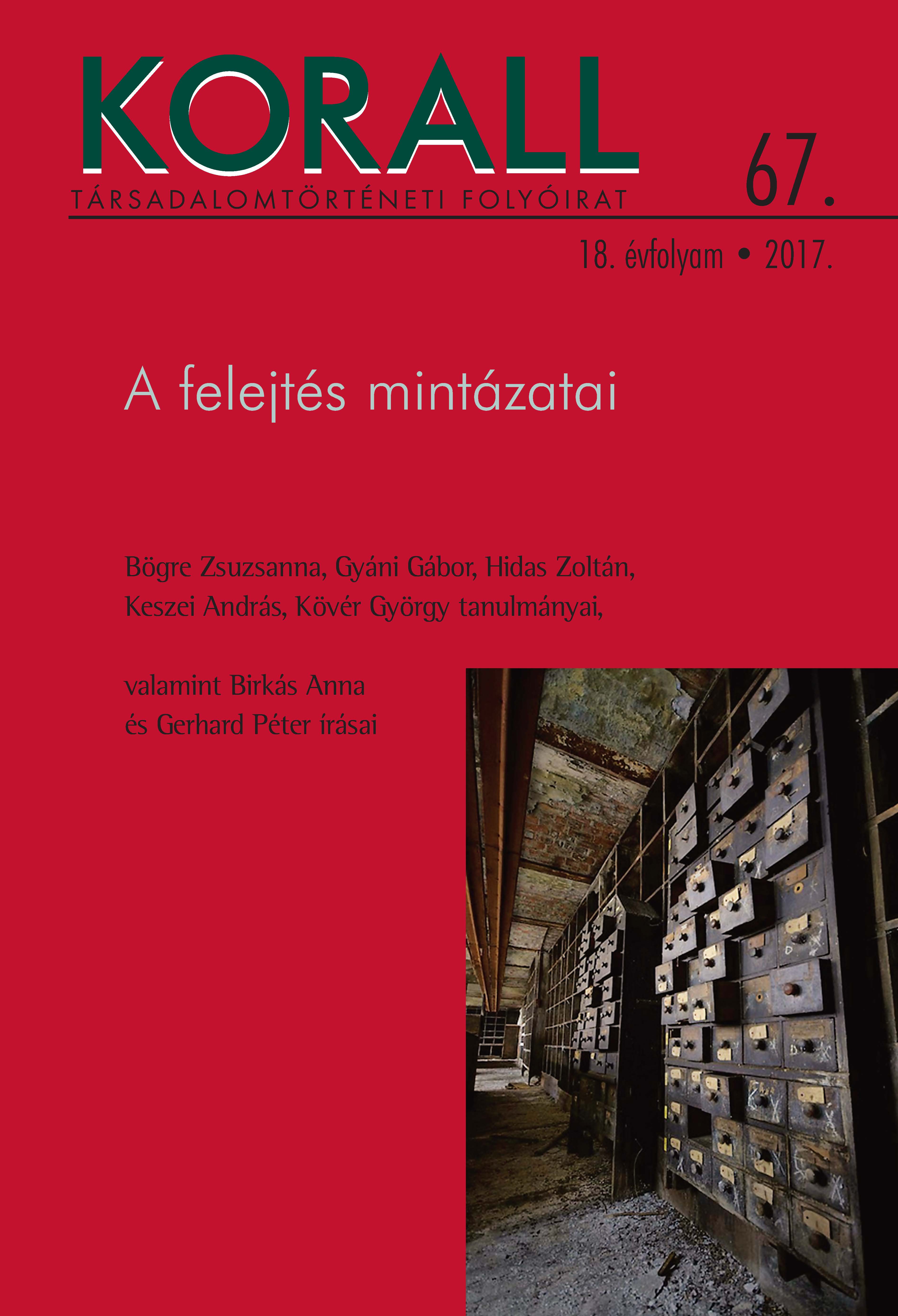Felejtés, társadalom, történelem
Forgetting, Society, History
Author(s): András KeszeiSubject(s): Cultural history, Social history
Published by: KORALL Társadalomtörténeti Egyesület
Keywords: history;theory of history;forgetting;
Summary/Abstract: The role of forgetting can be examined on various levels depending on the interpretive model, ranging from the isolated individuals of earlier psychological studies, through the dynamic memory systems seen as the result of social activities by sociology and anthropology, to the concept of long-term cultural memory manifest in and canonised by objects and texts. Individual-psychological, social-communicative and historical-cultural levels fuse in the practice of recall: looking at this process from the angle of forgetting, they make remembering selective. On the long term, the fate of events, knowledge and practices that remain unrecalled is fading and eventual oblivion, which can be interpreted as the dynamic relationship between these three levels. Identity is another important interpretive factor of the social practice of remembering, and thus that of the practice of the inseparable forgetting too. The self-image of the individual and society, based on the prevailing self-images, presents expectations to the individual and society: how do they see themselves and what should they be like? The social forces in various historical periods outline their own specific patterns of remembering and forgetting. Depending on their position, certain social groups can have more or less power and efficiency in hindering identity-transforming processes, whereas some do not have a real chance for this. Due to the nineteenth- and twentieth-century modernisation, as well as mass migration and lifestyle change, in many places, traditional worlds have been relegated to museums and oblivion. In a world of accelerating time and ephemeral phenomena and experiences, the cultural amnesia brought about by modern space creation and market economy can be counterbalanced by a precisely drawn, order-centred past which gains currency as an important point of reference in one’s identity.
Journal: Korall - Társadalomtörténeti folyóirat
- Issue Year: 2017
- Issue No: 67
- Page Range: 5-21
- Page Count: 17
- Language: Hungarian

